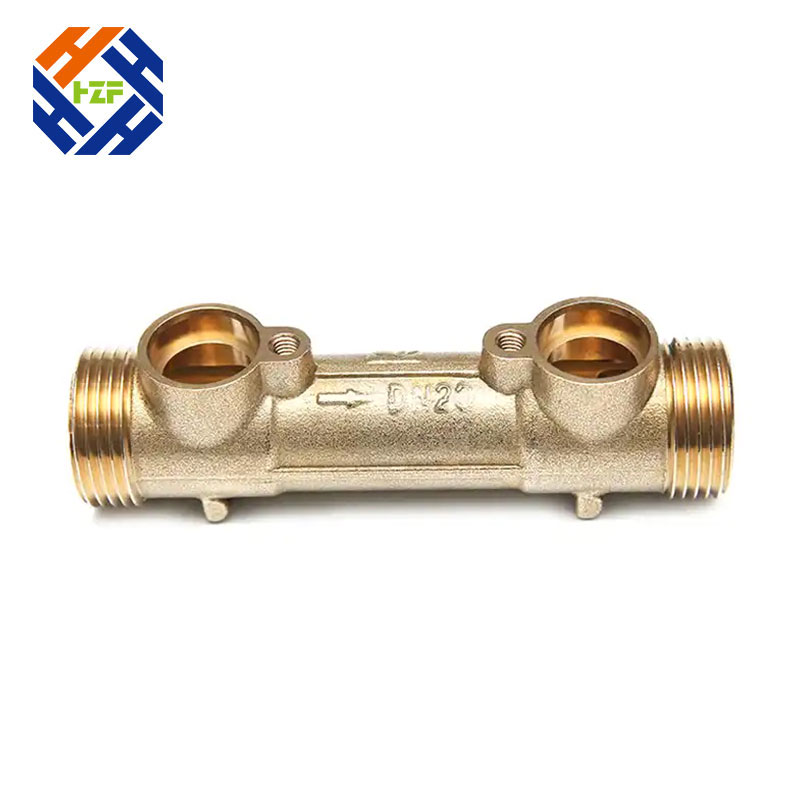Process of Hot Forged Brass Water Meter Case
2024-04-16
Forging a brass water meter case involves shaping a solid brass billet into the desired form through the application of heat and pressure. Here's how the process typically works:
1. Material Selection: High-quality brass, typically an alloy of copper and zinc, is selected for its excellent corrosion resistance, machinability, and strength. The exact composition of the brass alloy can vary depending on the specific requirements of the water meter case.
2. Billet Preparation: The selected brass alloy is heated to a temperature where it becomes malleable but not molten. This temperature varies depending on the specific alloy used. The heated brass is then formed into a billet, a cylindrical or rectangular piece of metal.
3. Forging: The billet is placed into a forging press or hammer, where it is subjected to high pressure to shape it into the desired form. In the case of a water meter case, this may involve multiple forging operations to create complex shapes and features, such as flanges, threads, and mounting holes.
4. Hot Forging: Hot forging is typically used for brass due to its lower formability compared to steel. The high temperature of the brass reduces its yield strength, making it easier to deform under pressure. Hot forging also helps to minimize the risk of cracking and other defects in the final part.
5. Precision Machining: After forging, the rough water meter case may undergo additional machining operations to achieve the final dimensions and surface finish. This can include drilling, milling, turning, and threading to create mounting holes, connection points, and other features.
6. Surface Treatment: Depending on the application and aesthetic requirements, the brass water meter case may undergo surface treatments such as polishing, plating, or coating to enhance its appearance and corrosion resistance.
7. Quality Control: Throughout the manufacturing process, quality control measures are implemented to ensure that the water meter case meets the required specifications and standards for dimensions, tolerances, and mechanical properties.
Forging a brass water meter case offers several advantages, including high strength, dimensional accuracy, and the ability to produce complex shapes with minimal material waste. Additionally, brass's natural corrosion resistance makes it well-suited for water meter applications where exposure to moisture is common.



